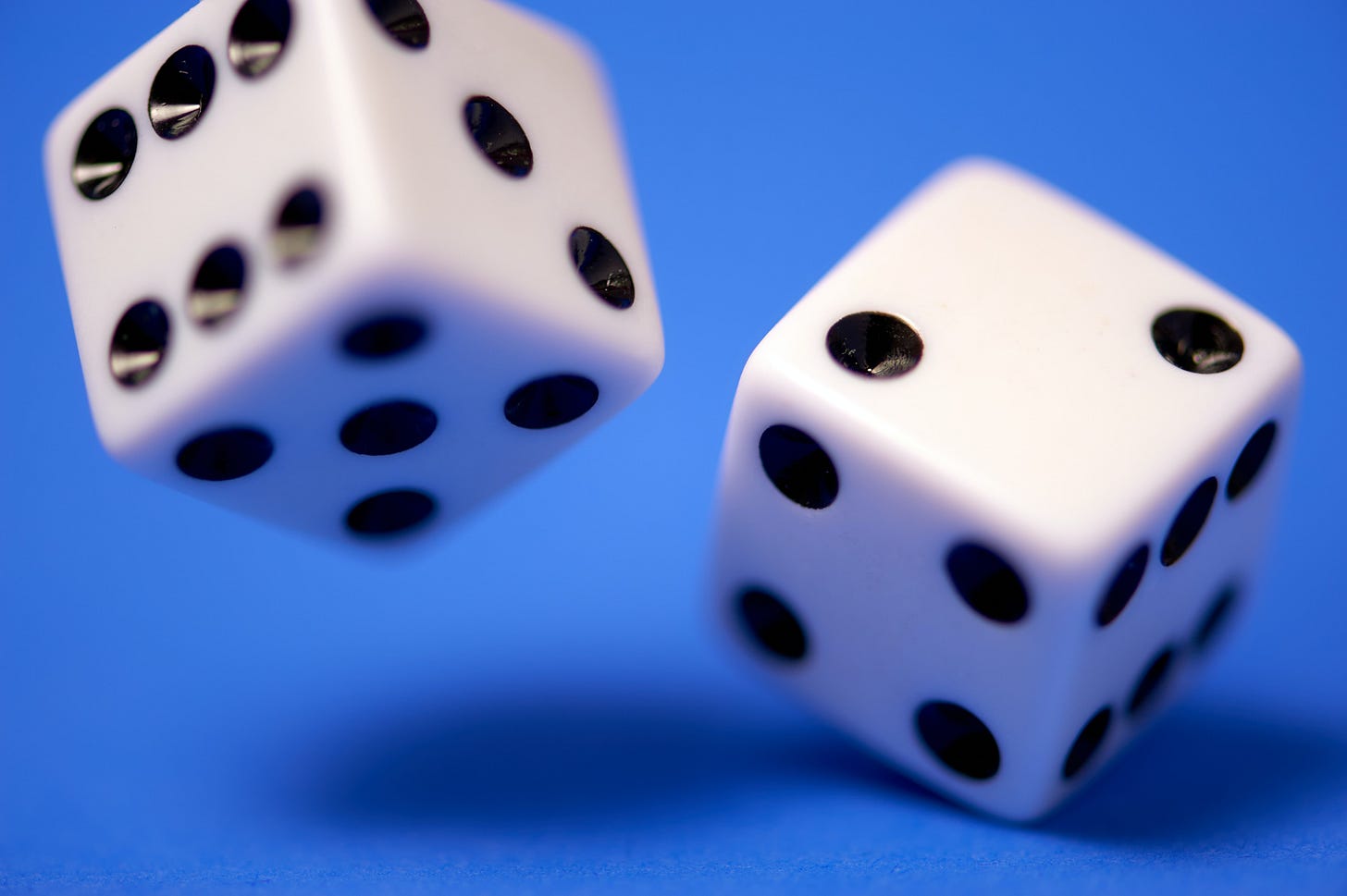I launched this blog last year with a column about college admissions. I argued that at some point in the process a lottery should be used, weighted to give preference to various groups, including racial minorities. A lottery, I thought, would preserve the good in “affirmative action” and lessen its downsides.
Since then, the Supreme Court has declared racial preference in admissions unconstitutional. Whether the Court’s reasoning was sound and whether racial preferences are fair will be debated for years. I want instead to move on.
Others are moving on, too. They’re finding new ways to think about justice, racial and otherwise. There’s valuable new research into how admissions decisions are made, especially within highly selective schools. The process matters: Those graduates have an edge throughout life. They’re more likely to get into top graduate schools, to become CEOs of Fortune 500 firms, to join the Senate. Everyone capable deserves an equal chance at these things. And the country needs diversity in its leaders. We all have blinders, but different backgrounds give us different blinders.
Admissions favor the wealthy.
The new research finds that admissions decisions favor the wealthy over other applicants with the same SAT scores. The advantage is hidden, a result of factors that on their face are income neutral. First, “legacy” admissions favor the children of alumni. Second, athletes are given preference. Rich kids are more likely to play sports, few of which can be played on the street. Sports cost money, often a lot of it. (Think of polo or sailing, of tennis and golf.) Finally, recommendations from selective private high schools count heavily. Those from even the best public schools do not.
The wealthy are overwhelmingly white.
In addition, many schools have programs to help applicants from low income families. Advantages for the rich and special help for the poor combine, leaving middle income families abandoned. The unfairness here is not just racial.
The unfairness is not just racial.
Not every prestigious school fits this picture. MIT, for instance, does not favor the children of alums, or athletes, or those from private high schools. As a result their student body is economically diverse. The same is true of public universities, even the most prestigious.
Many private schools are trying to reform their process. (The groundbreaking new study was led by a Harvard economist.) Ingrained assumptions of superiority give way slowly and grudgingly, but there’s energy in the right direction.
Public schools are considerably fairer
I offer again, as I did a year ago, another tool for reform. Admissions decisions should be made, at some point, by lottery. Essentially that’s what already happens. Acknowledging the truth would be good in itself. Formalizing the role of chance would take us closer to justice and to diversity.
To be specific: At some point colleges should acknowledge that everyone still in the applicant pool is an excellent candidate. At the point, for instance, when the committee decides whether a 4.0 GPA from school X means more than a 3.9 from school Y; whether a Kazakh or a Kenyan adds more diversity; whether a trophy in track outweighs captaining the tennis team. At that point decisions are essentially arbitrary, and further winnowing inevitably swayed by bias. A lottery blocks that bias, and foregrounds the hidden role of chance.
Lotteries can be weighted. Certain kinds of applicants can be given better odds – in essence, given two tickets rather than one. The Dutch, in their lottery for medical school admissions, give better odds to applicants with the highest test scores. American colleges could choose to do the same. They could go further, giving better odds to those who are, say, first generation college students, or from low income families. Some have suggested assigning “adversity scores.” Veterans have been given preference; should they still?
Race as such could not be used. But these measures will help counter the cost race has inflicted on students of color.
A lottery acknowledges the role of chance in college admissions. Today’s system hides it, to everyone’s detriment -- except the schools themselves, who need the illusion that their graduates are the best of the best. Their brand depends on it. For everyone else a lottery would lighten the stakes. Admission to an Ivy would matter less if its arbitrariness (and of course its current favoritism to the rich) were better known.
Here’s to the day when lucky high school seniors open their mail and shout “I won the lottery!” And when the others sigh “I didn’t win.” Rather than “I failed.”





I think this is a very interesting and reasonable idea. Is it being discussed at all in higher education admission circles? If not , maybe you could submit this as an op ed. Somewhere. NYT?
This is intriguing. I wondered and worried how random selection would work for the Redistricting Commission. But the commissioners selected rose to the challenge, learned on the job, and produced a competent result. When I taught AP Stats I let anyone in the class who wanted to join and the self selection. worked - people don't deliberately puts themselves in impossible positions. Teachers/Professors might rise to the challenge too, of teaching a more diversely skilled group.